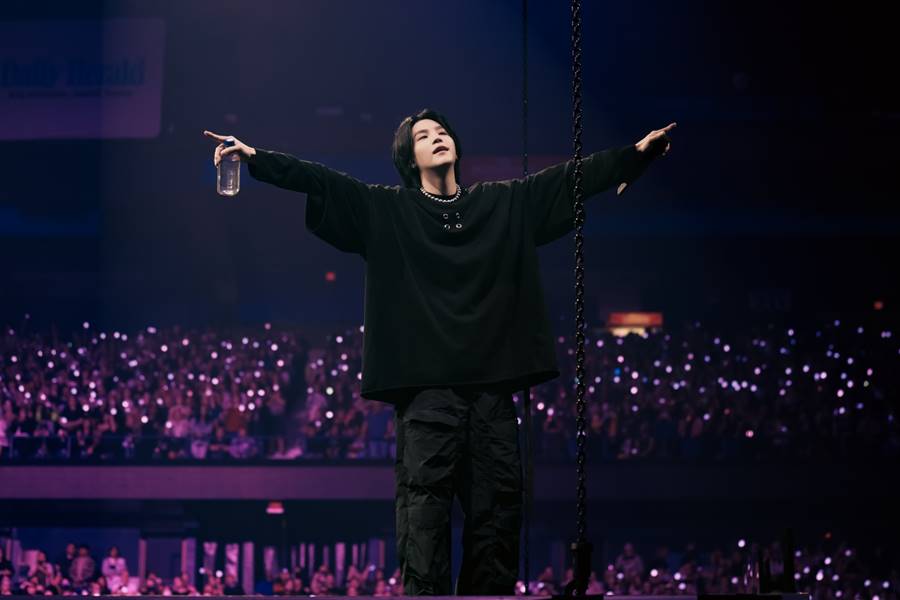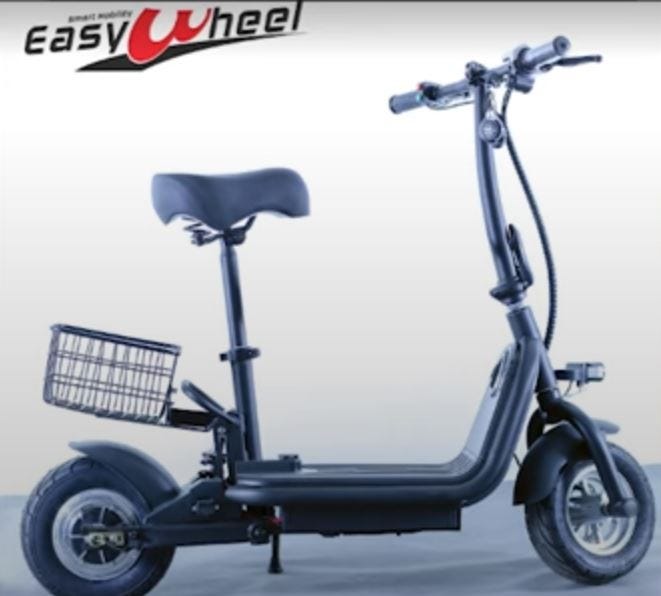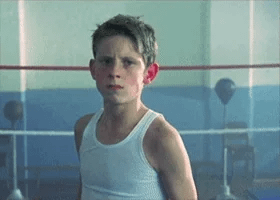By Jae-Ha Kim
Substack
August 19, 2024

Many years ago, I took a bike ride by myself. The trail wasn’t crowded. There were no pedestrians in my way. But while making a sharp right turn from the trail onto the concrete sidewalk, I fell. Hard. A few kind folks driving by stopped to make sure I was OK. I wasn’t, but I was too embarrassed for having fallen — for absolutely no reason — that I pretended I was fine. I grabbed my bike and hobbled back home.
This is one of the incidents I thought about when I first heard that Suga (from the Korean supergroup BTS) had fallen off his foldable mini electric kick scooter after a night out drinking.

(ETA: I had originally said that the scooter resembled this one, which doesn’t have a small seat attached. Thanks for supplying this photo, Ana, which apparently is the same model as Suga’s.)
Yes, there are obvious differences between the famous rapper and myself. I don’t drink alcohol, so therefore no one could accuse me of being drunk when I fell. I am also a middle-aged woman who is rather anonymous. No news media would write a story about my having fallen off a bike, because literally no one would care.
Unfortunately for Suga, everything he does is news. And as the inflammatory and erroneous news reports escalated into a feverish pitch, I wasn’t thinking about my own bike fall anymore, but rather what the police, media and public had done to Lee Sun-kyun just eight months earlier. They had forced the prominent Parasite actor to stand outside the police station, bowing and apologizing to the media and public for supposedly committing a crime — for which the police had no proof. After the authorities interrogated him for 19 hours for alleged drug use, Lee was later found unresponsive in his car, in what most likely was death by suicide.

Just seven months ago, Academy Award-winning filmmaker Bong Joon-ho led a protest against the South Korean media and police. He had wanted something meaningful to come from Lee’s tragic death. Backed by a group of other well-known creatives, Bong asked for news media to stop with its sensationalist and unverified coverage, calling out KBS in particular. Bong also asked for an investigation of the police, who had broadcast Lee’s questioning live to the media. As a reminder: Lee had passed all his drug tests and the police had no evidence that he was using recreational drugs.
Clearly, no lessons were learned. Some reporters and netizens are demanding that Suga stand in a police photo lineup. Why? So he’ll be humiliated. OK, then, how about having the JTBC editors who authorized the slandering of Suga to do the lineup first?
Were all the words of remorse after Lee’s death merely platitudes? Has no one bothered to consider why so many South Korean celebrities choose to die rather than to live after being hounded by hateful people (including journalists who should know better)? Have they already forgotten the years-long ordeal that Tablo went through with TaJinYo, when news pundits debated nightly whether he deserved the online hate he was receiving from anti-fans who refused to believe the rapper had graduated from Stanford? (Tablo has talked at length about how he had suicidal ideation at this period in his life.)
Will the press and public only be satisfied if Suga self harms… or is forced to leave BTS?
There is no doubt that Suga drank. He quickly acknowledged it and took accountability for his actions:
“I feel deeply sorry to come to you with such disappointing news. After drinking at dinner last night, I tried to get back on an electric kickboard. I chose to take a kickboard back home as I was nearby and I was not aware of the law regarding drunk driving on a kickboard. Hence, I ended up violating the traffic law.
I fell down alone while parking the kickboard at the front of my house door. Police personnel were nearby and I was issued with a license revocation and a fine. No one was injured and nothing was damaged because of the incident.
But I bow down and sincerely apologize with full responsibility for my inexcusable action to everyone.
I apologize to everyone who was hurt by my careless behavior. I will be more careful in the future so that such incidents don’t happen again.”
For the record: no one was hurt other than Suga.
Should he have found another way home? In hindsight, yes. Does this ongoing shitshow he’s being subjected to fit his crime? Absolutely not.
To put things into perspective, when Lee Sun-kyun was hounded for allegedly taking recreational drugs, South Korean media churned out 50 articles per day until his death. By comparison, the media already has been generating four times as much daily coverage on the BTS rapper. And often with incorrect information.
In order to have its gotcha moment, JTBC aired CCTV footage of a man driving what appears to be a motorcycle or a motorbike on the road. The footage is so grainy that it’s difficult to ascertain what the vehicle is, much less who is driving it. Honestly, I could find Waldo quicker than I could ID the person on that motorbike/cycle. But the station insisted the footage was of him, which contradicted Suga’s statement that he had been on a smaller kickboard scooter, making him sound like a liar.
In fact, JTBC’s footage was not of Suga. They eventually aired a short retraction and said they were sorry for the confusion, before deleting the footage from its archives.
But here’s the thing: who in that news department thought it was a good idea to air something that hadn’t been vetted? And why is no one suing the news shows for continually doing this? South Korea has some of the most draconian laws when it comes to libel and slander. Heck, you could potentially lose a case if the other party can prove that what you said (even if it’s the truth!) harmed their reputation or business.
A real-life example: A South Korean entertainment company once asked me to sign a document saying that if I wrote anything negative — which is so subjective, by the way — they would sue me AND make me pay their legal fees.
Listen, I don’t know who in their right mind would sign that, but it wasn’t me.

South Korea’s predominant drinking culture is considered normal for those of legal drinking age at school or work. So Suga having drinks with his friends, or even getting drunk, isn’t something that’s discouraged. (And again, I am not saying Suga should be excused for drinking and scooting. It’s against South Korean law and he didn’t abide by it. I am confident he will not repeat this mistake.)
But recreational drinking is so commonplace that it’s reflected consistently even in K-dramas. While some (like “My Liberation Notes”) show the ramifications of excessive drinking, most subplots depict its cast members enjoying 소주/soju (distilled liquor) or 맥주/maegju (beer) as a fun way to let off steam, even when the drinking is excessive. It’s often played off as cute, especially when it’s the female lead who drank so much she can’t even stand up without assistance and has to be carried on her boyfriend’s back — piggyback style — before he chastely tucks her into her bed and leaves.
Literary works and historical archives tend to describe alcohol positively, as necessary for human health and life, according to the “Encyclopedia of Korean Culture,” released by the Academy of Korean Studies. For instance, the sentences, “Alcohol is the best of a hundred medicines,” and, “Drinking alcohol gives muscle strength and relieves lingering illness,” comes from the ancient Chinese text, “Han Shu Shi-Huo zhi,” written during the Goguryeo era (37 BC-668 AD). — The Korea Herald
Suga isn’t stupid. He knows he’s one of the most famous men in South Korea, and that the news media and the public would literally love to catch him in a scandal. And since he hasn’t been caught in a dating scandal or a bankruptcy scandal or a family scandal, the news is making do with what they have: scooter-gate.

“All of this makes me think about shame,” said Joy Lieberthal Rho, a Korean American LCSW who grew up in South Korea before immigrating to the United States. “I was really struck by the discrepancy of air time and intense vitriol that erupted. Shame is used to regulate behavior. BTS is so huge and any bit of news to knock them off the pedestal will garner incredible news and views.”
Lieberthal Rho added, “The question by non Koreans — why would South Korea go so out of their way to burn a group, a member, who has only brought so much positivity to their country and culture? And all I can think of is, conformity is in crisis when one dares to stand out. Conformity at its best makes one feel like they are a part of something, a community. At its worst is when one dares to step out and then the community does everything to bring them down, looking for any reason to humble them to return to the masses. Listening to the politics of what is going in South Korea now with investigations of the President’s wife, I was thinking, ‘Suga, you landed in the shit at the worst time.’ He became the distraction.”
When I fell off my bike all those years ago, my left knee was skinned raw and bled profusely. It was swollen for weeks, which made it uncomfortable to walk, much less ride my bike again. But all that’s left from that incident now is a faded scar.
For Suga, I don’t think this memory will easily fade. But if there’s one thing I know about him as an artist, I’m confident that he will take the trauma he has experienced and channel it into his work — which ultimately can become a valuable lesson in human behavior for all of us.
ETA: You may read more about all of this in Suga’s ‘Perp Walk’ Wasn’t Necessary: Due Process vs. Freedom of the Press
* If I have any facts incorrect, please do reach out and I will fix them (and attribute it to you, unless you don’t want to be mentioned). But if you simply disagree with what I’ve written, I can live with that — and hope that you can, too. Cheers!
© 2024 JAE-HA KIM | All Rights Reserved






For more reader dialogue, head to my comment section here.